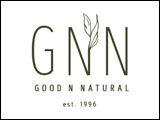Pig producers are advised to be aware of the nutritional profile of the dried distillers grains with solubles they use in swine rations and to account for variations in quality.
Dried distillers grains with solubles, a co-product of ethanol production, offer swine producers an opportunity to reduce feed costs but the nutritional profile of these co-products can vary considerably.
Neil Campbell, a partner with Gowan’s Feed Consulting, notes a growing number of ethanol plants are installing centrifuge equipment to remove additional fat from the soluble stream.
We like to recommend using an approved plant system of procurement where you understand what plants are producing products with the higher fat content or predictable energy value and then sourcing from those plants.
You can do that with any of the re-sellers or the marketers of the product and just ensure that you’re getting product from a plant that you know the nutrient content of.
Then we further recommend that you test the product when you receive it.
Send out samples to the laboratory, have it analyzed and make sure that the nutrient content of the product is matching what your expectations are and what you’re formulating in the rations.
This whole process of removing the fat from the solubles I think will continue to grow.
I think more and more plants will extract more oil from the distillers grains.
It’s predicted by mid-way through 2012 that 50 percent of the ethanol plants in the United States will be extracting a significant amount of oil from the distillers and I think pig producers and feed manufacturers need to be aware of that and need to account for that in the procurement of the distillers and then how they’re building the formulations for the product.
Campbell says, if we don’t adjust the ration to account for the lower energy content, performance will be impacted but, if the ration is balanced accordingly, there won’t be any negative performance implication.



